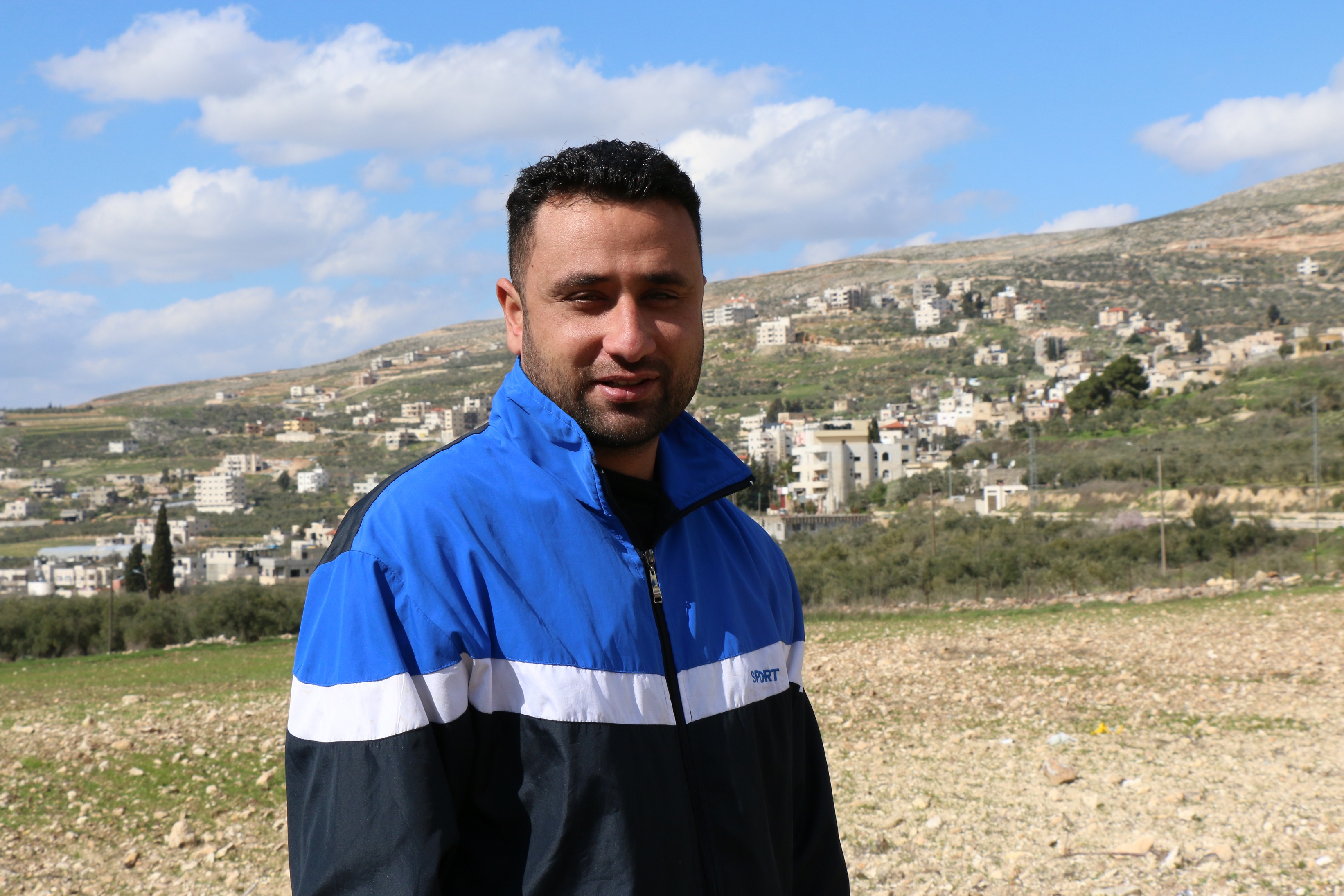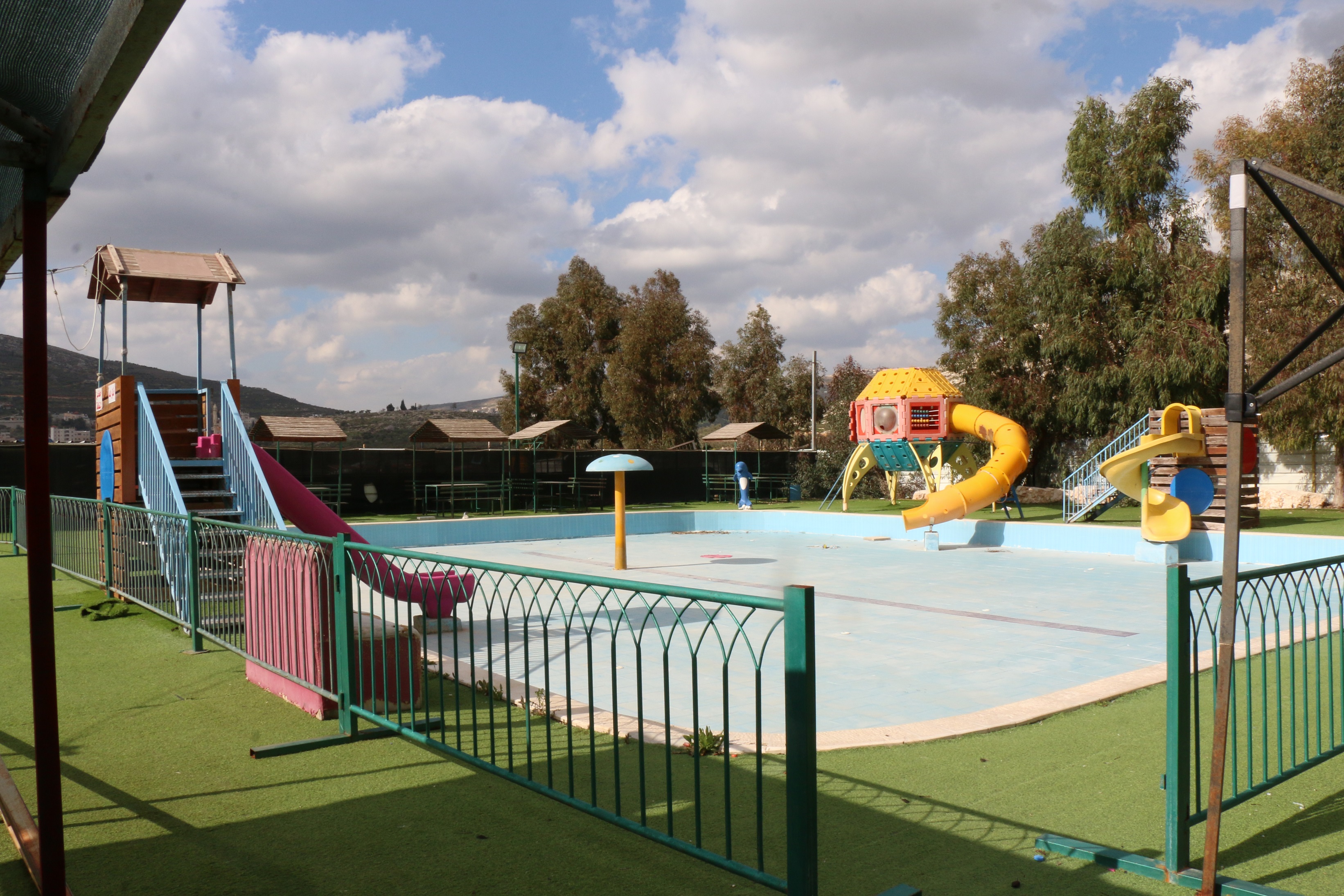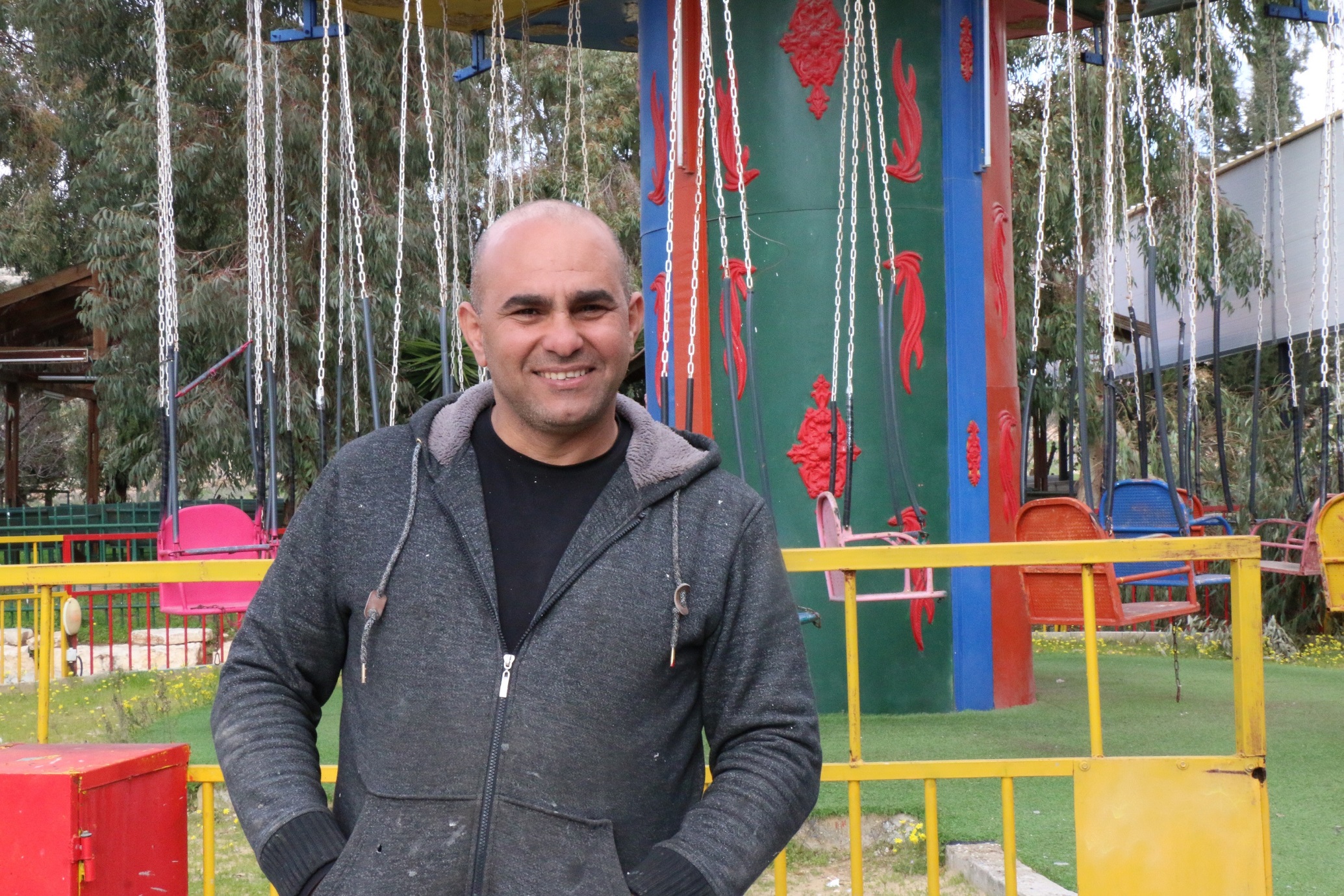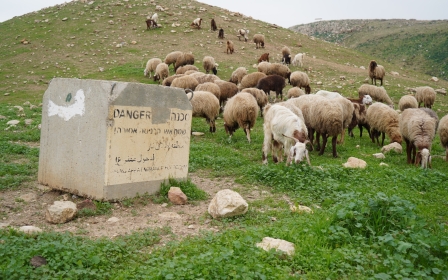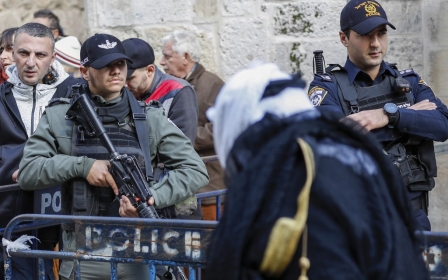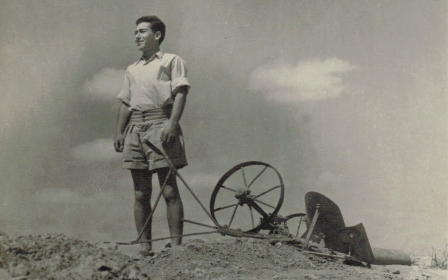Israel's latest bypass road has Palestinians fearing the worst
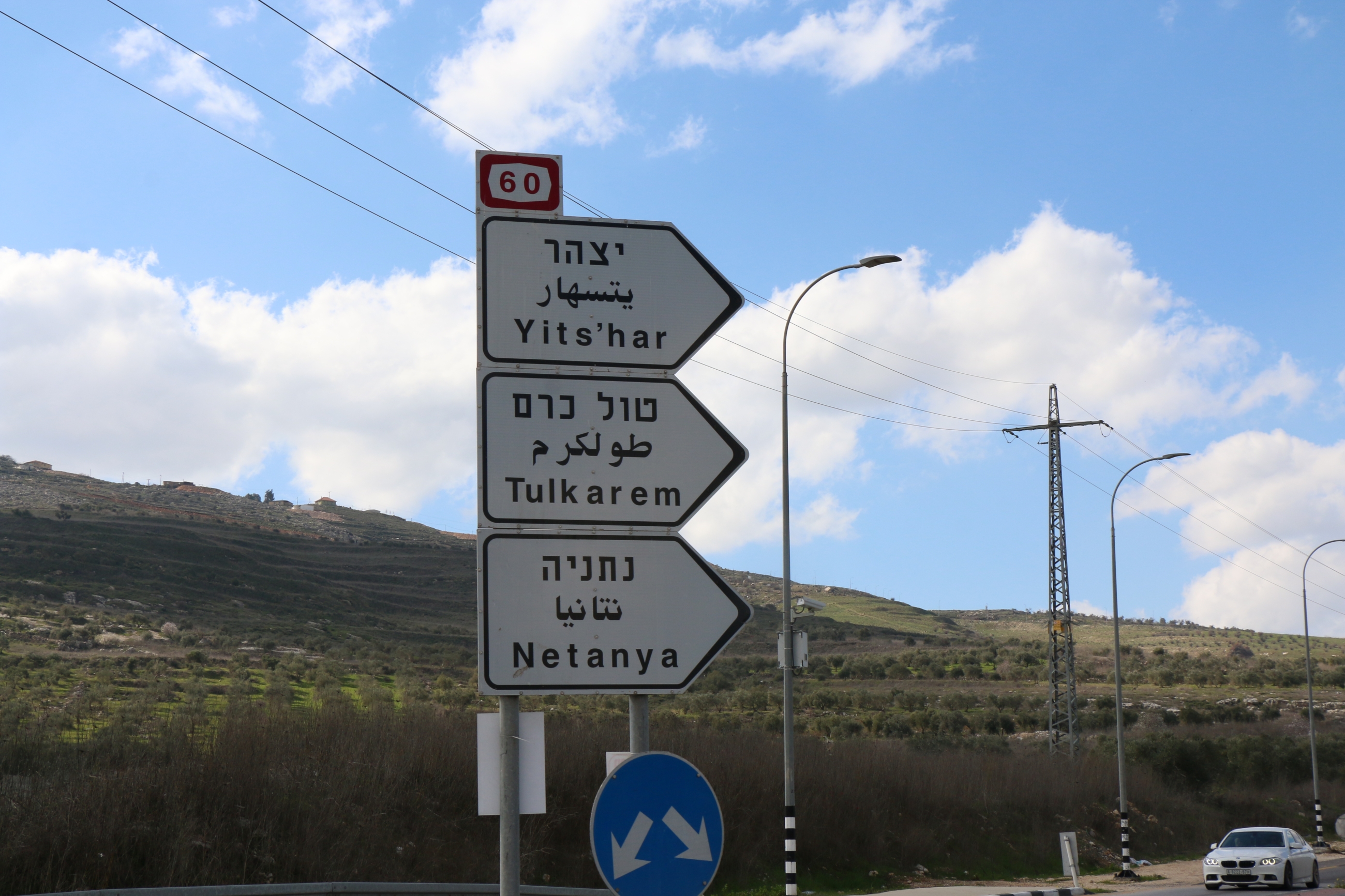
The road to Nablus can be a daunting one for Palestinians.
The hilltops surrounding the city in the north of the occupied West Bank are dotted with settlements and settler outposts, notorious for housing some of the most violent and extremist settlers in the territory.
New MEE newsletter: Jerusalem Dispatch
Sign up to get the latest insights and analysis on Israel-Palestine, alongside Turkey Unpacked and other MEE newsletters
The main thoroughfare connecting the central district of Ramallah with Nablus and its surrounding villages passes through the Zaatara checkpoint and through the town of Huwara, with exits along the way to neighbouring Palestinian villages, as well as settlements like Yitzhar and Har Brakha.
For years, the road has been shared by Palestinians and the very settlers who often raid and terrorise their villages. But things might be changing.
Last week Israeli authorities informed the local councils of at least four villages to the south of Nablus - Huwwara, Burin, Beita and Odala - that Israel would soon begin construction on a settler bypass road in the area.
“They presented the decision as if it were going to be a good thing for us,” Ghassan Najjar, a 30-year-old local activist from Burin told Middle East Eye.
“It will ease ‘congestion’ in the area, they told us, and would improve ‘security’. Of course, they mean security for the settlers, not for the Palestinians,” he said.
But in order to build the new bypass road, Israel will confiscate more than 40 hectares of land from the surrounding Palestinian villages.
“This is just another case of Israel stealing Palestinian land in order to benefit the settlers,” Najjar told MEE. “It’s plain and simple.”
Apartheid roads
The plans for the Huwara bypass have been in the works for years, according to Najjar, who said locals had been kept in the dark as to the details of the road until a few days ago.
“Three days ago they sent all the local councils an aerial view of the map, but didn’t specify exactly how many dunams will be confiscated from each village,” he said, speculating that the Israelis will end up confiscating much more land than the plan states.
A 2019 report from settlement watchdog Peace Now said the bypass road is intended to serve only four settlements: Yitzhar, Itamar, Har Brakha and Elon Moreh, home to a combined 7,132 settlers.
The group noted that the cost of the five and a half kilometre long road was estimated at a quarter of a billion shekels ($69 million), or about NIS 35,000 per settler ($9,750).
According to Najjar, when notifying the local councils that construction for the road was moving forward, Israeli authorities painted the bypass road in a positive light, even telling the councils that the road would also be accessible to Palestinians, not just to Israelis.
“First of all, I highly doubt that they will let the Palestinians use this road,” Najjar told MEE, pointing to dozens of examples of settler-only bypass roads across the West Bank.
Even if Israel keeps its word, Najjar said that “they can close it off from us at any time they want,” in order to prevent Palestinian access.
He compared the plan to the bypass road in the Ramallah-area town of Anata, famously dubbed "Apartheid Road" for its metres-high wall running down the middle of the highway, separating the Israeli side from the Palestinian.
“They praised it as a measure to ease congestion for both Palestinians and Israelis, but they built a huge wall to keep the Palestinians separated, and just confiscated more land from Anata,” he said.
Threatened livelihood
The lands that are to be confiscated from Burin and the other villages are agricultural lands, mostly belonging to private Palestinian landowners.
As one of the largest villages in the Nablus area in terms of land mass, Burin’s land spans across a whopping 3,200 hectares.
But over the years, with the expansion of settlements, checkpoints, bypass roads, and military zones, only around 700 hectares of Burin’s land are actually accessible to the residents.
“We can barely use any of the land we do have, and now they want to take more,” Najjar said. "They will take more of our land, cut down our olive trees, affect our agriculture, hurt the economic situation of entire communities, and essentially kill the land. What part of this is good for Palestinians?”
A few kilometres southeast of Burin, a multicoloured ferris wheel rises above the olive groves between Huwara and Odalah.
Luna Park is a small family-owned business and one of the few sizeable amusement parks in the West Bank, attracting tens of thousands of Palestinians from across the territory every year.
However, one of the park’s main attractions, a children’s swimming pool and play area, will soon be levelled to the ground, and paved over with the new Huwara bypass road.
“Every summer people from 50 surrounding villages come here to bring their kids to swim,” Ashraf Odeh, who co-owns Luna Park with his brother, told MEE from outside the now empty swimming pool.
Just after the local councils were notified of the construction plans, Odeh, 42, said a group of Israeli soldiers and officers from the Coordination of Government Activities in the Territories (COGAT) came knocking on his door.
“One month ago they had come to ‘survey’ the land, and three days ago they came to give me a notice telling me to empty out the pool and begin the process of tearing it down,” he said.
Odeh was told that he had two choices: demolish the pool area himself, or wait for Israeli bulldozers to come do the job, for which he would have to incur the cost of demolition.
“By losing this pool area I’m going to lose 40 percent of the revenue of my business,” he said, adding that since he began construction on Luna Park in 2009, he has invested more than 700,000 shekels ($204,874) in the business.
While Odeh still doesn’t know the exact dimensions of how much of his park will be lost, he said he cannot be too sure that the Israeli authorities will not end up destroying more than just the pool area.
“They said they won’t take more land than this, but you never know with Israel. They didn’t have to build this road, let alone tear through our lands and businesses to do it, but they did. Their sole purpose is to kill this land for the Palestinians.”
Broken record
The consequences of such roads are vast, and far reaching. In the West Bank alone, there are more than 800 kilometres of bypass roads spanning across the territory, designed to facilitate the movement of settlers within the occupied territories.
Palestinians are collectively denied access to this networks of roads, primarily under the pretext of security or military purposes.
“They say they build these roads for the security and protection of the settlers,” Najjar said, referring to Israeli claims that shared roads are "hotspots" for Palestinian attacks against Israelis.
“But they don’t acknowledge the fact, the reality, that the main perpetrators of violent attacks are actually the Israeli settlers who attack the Palestinians on a daily basis.”
Najjar recalled the 2018 killing of Palestinian woman Aisha al-Rabi, who died after her family’s car was attacked by a group of masked settlers hurling rocks at Palestinian cars near the Zaatara checkpoint.
With the construction of the new bypass road, Najjar anticipates that the security situation for Palestinians could actually get worse.
“If you remove the settler vehicles from the main Palestinian roads, it will only make it that much easier for settlers to target Palestinian cars on these roads, because they won’t have to worry about distinguishing between us or Israelis. They use security as an excuse for everything,” he said.
According to Peace Now, settler bypass roads do not actually reduce violence against Israelis or Palestinians, but further complicate the security situation in the West Bank.
The group described the construction of bypass roads under the pretext of security as a “tactical” way of masking “the real goal behind these roads: to expand the settlements and to advance plans for annexing the West Bank at the cost of a two-state solution.”
“A bypass road will provide for a development route for the settlements by shortening the time of a commute, thus incentivising Israelis to live deeper in the West Bank,” Peace Now said in its report, adding that there is a spike in settlement construction “almost immediately” after the construction of such roads.
“Thus, under the pretext of security lies the demand for the development of the settlement.”
No one to turn to
Since the villages were notified that construction on the road was moving forward, residents like Najjar and Odeh have been left in limbo, wondering what’s going to happen next.
Najjar said he anticipates the next few weeks will see an increase in military presence in the area, and cordoning off the land surrounding the construction sites as “closed military zones.”
But for now, all that local Palestinian residents can essentially do is wait.
“Moments like these are extremely frustrating for us,” Najjar told MEE from the local boy’s school in Burin, just below the Yitzhar settlement hilltop.
'The Israelis do what they want, and our leaders are nowhere to be found'
- Ghassan Najjar, activist
According to Najjar, when the local councils contacted the Palestinian security liaison to express their concerns about the road, they were allegedly told to do nothing, and enjoy the fact that they would have less traffic in the area.
“When the Palestinian Authority has a real chance to stand up to Israel and its policies, they do nothing. Instead, they sit in their offices in Ramallah and claim to be the leaders of the revolution. If they were true leaders they would come to the land, come to our villages, and support the people to protect and defend their lands,” he said.
Echoing Najjar’s frustrations, Odeh told MEE that he has no real choice other than to sit and wait for Israel to take his land and destroy his park.
“I don’t have a government that I can turn to to protect me and defend my rights. The Israelis are turning the West Bank into an open air prison, enclosed by checkpoints, walls, and roads like this,” he added, saying that Palestinians have reached a breaking point.
“We continue to suffer, but our government won’t stand with us, the Arab countries won’t stand with us. We have nowhere to turn to.”
This article is available in French on Middle East Eye French edition.
Middle East Eye delivers independent and unrivalled coverage and analysis of the Middle East, North Africa and beyond. To learn more about republishing this content and the associated fees, please fill out this form. More about MEE can be found here.



